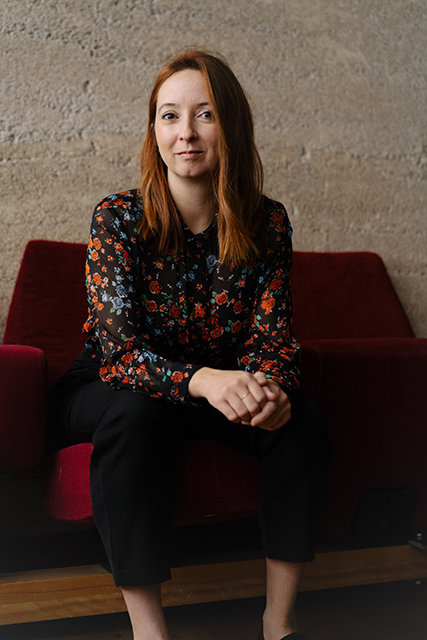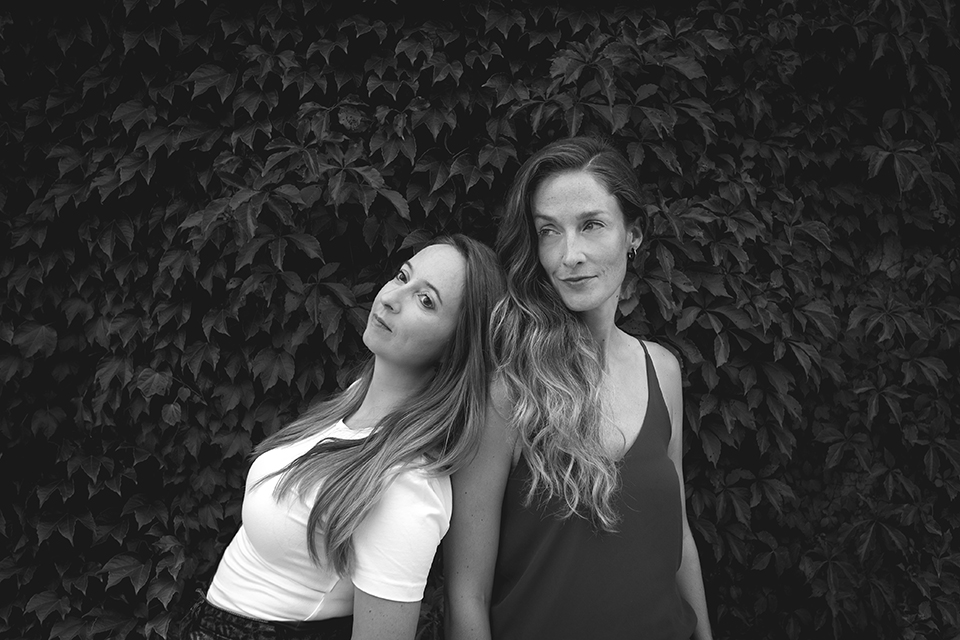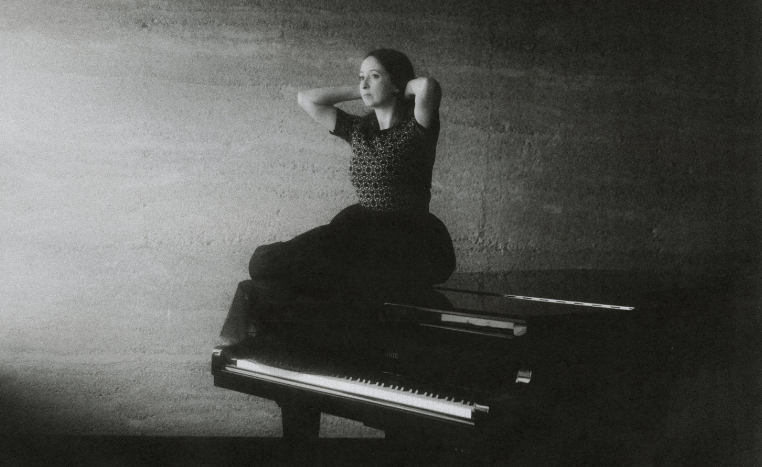
It was the continuation of a family tradition when Amélie Fortin began learning piano.
“My mom was also a pianist. So when I was a baby and very young, she was playing almost daily. I showed an early interest in music and started playing by ear. When I was about three years old, I was playing the theme of my favorite TV show. So my mom started giving me lessons when I was about four or five, but we argued too much, so she sent me to another teacher—and then I never stopped.”
Amélie grew up on a farm in a small town in Lake Saint-Jean, Canada, and eventually moved to the University of Montréal to continue her studies. The move was important for many reasons—not only was she exposed to “so many concert venues of all styles, and it’s really nourishing to listen to all that music.”

In university, Amélie met Marie-Christine Poirier, another talented pianist.
“We just had a lot in common, and we became great friends. During our bachelor’s, we had to take chamber music lessons. Since we were friends, we decided to sign up together. And then, we always said that the magic happened there because we found that it was so easy to play together, and we had a lot of fun.”
They continued to pursue post-graduate education together, specializing as a piano duo.
“We learned a lot of repertoire and decided that we wanted to push this project further—and since then, we never stopped.”
With over 20 years of playing experience together, Amélie describes them as “sisters” and says, “There’s no day we don’t speak to each other.”
Duo Fortin-Poirier has traveled and placed in major competitions, including 2nd Prize at the 2013 Concorso Pianistico Internazionale Roma. They have released three albums, several enchanting music videos, and are four-time Opus Prize nominees, among other accolades. Speaking of their special relationship, she says:
“We’re like a whole person together, like a squid with many hands. I think Marie has a very good head—she’s really organized. And me? I’m maybe more sensitive, and I bring the colors.”
The pair made it a point to not only learn the works of past greats but also highlight new composers.
“We decided that we wanted to include female composers from Quebec in every production we made.”

This thread of original works struck a chord in Amélie that had been quietly humming for some time. She had always been inspired to try new things, but being raised in the classical tradition, she was not allowed to.
“When I was 15 years old, I got a gig in my hometown as an organist at the church. In the hymn books, there are songs but no left hand. So I always joke that it’s because of Jesus that I started improvising.”
Amélie was always able to pick up music by ear and occasionally wrote down ideas, but she felt daunted since she had not studied composition. However, as she began accompanying more artists and choirs, she found herself needing to arrange music. It was during the pandemic that she finally said:
“Okay, I have time, and I want to compose music—like, I allowed myself.”
She applied for a grant that would push her to work toward a deadline.
“I’m so happy I did it because it’s a great thing. I tour a lot, and I’m always everywhere, but this allows me to be with myself—like an introspective moment, almost like meditation. It’s my time for me. It’s like a gift that I gave myself.”
The outcome of this project is a beautiful EP entitled Aqualudes. Each of the four tracks represents a different type of stream or body of water. The music captures moments of stillness and rushing movement, skillfully combining her classical training with a jazz influence. The theme brought Amélie back to her childhood and hometown.
“We have Lake St-Jean, a big lake—it’s almost like a sea. I’m really attached to the water. And I realized that the pieces reminded me of water, so I thought that would be a great theme—and that there would be many ideas to explore with that.”
Seeking a more universal appeal beyond the Quebec waterways, she aimed for poetic song titles.
“Lac Miroir” is like a very calm lake, with floating ideas in the piece. “Rivière du Nord” is a nod to the passage of time, reflecting the continuous movement of water. “Mistassini” evokes a sinuous and dangerous river, making it a toccata for piano. The final piece, “Chute-aux-Galets”, is also a toccata but features more movement and rhythmic surprises.
Watch our full interview with Amélie on YouTube and stream Aqualudes on Spotify.






